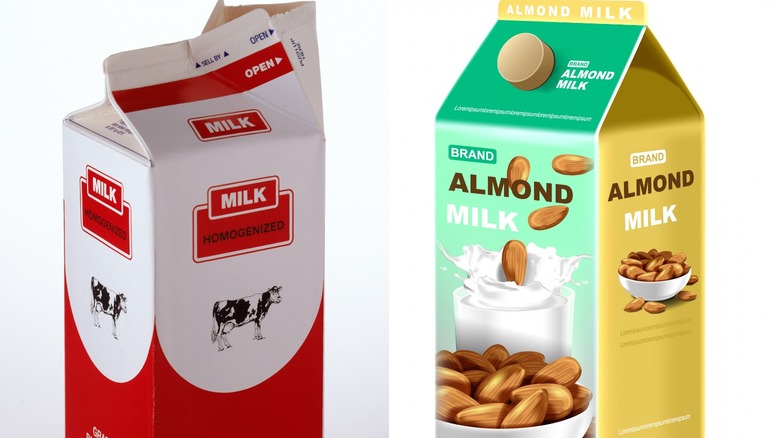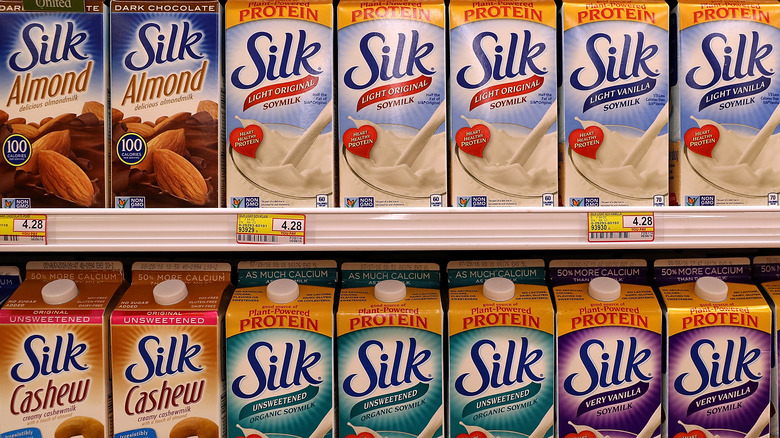FDA Says Oat And Almond Alternatives Can Be Called Milk
Advocates for the dairy industry were dealt a blow this week with a draft ruling from the Food and Drug Administration. After years of gathering public input on the matter, the FDA says that plant-based drinks made from sources like almonds, oats, and soybeans may continue to be labeled as milk.
Despite assertions from the dairy industry that labeling these plant-based drinks as milk was confusing and misleading to consumers, the FDA disagrees. In their draft ruling they share that their findings show, "consumers generally understand that PBMA [plant-based milk alternatives] do not contain milk and choose PBMA because they are not milk."
Though a decades-old debate, the issue of how to label plant-based milks began to heat up in 2017 when Wisconsin Senator Tammy Baldwin proposed the DAIRY-PRIDE act, legislation that would define milk as animal-based only. The FDA commissioner at the time, Scott Gottlieb M.D., agreed and also sought to restrict the plant-based industry from labeling their products as milk. At a 2018 summit, Gottlieb famously snarked, "An almond doesn't lactate." (Via POLITICO.)
The FDA and dairy industry seem to agree on one point
In making their case for the FDA to limit the use of the term "milk," one of the arguments made by dairy advocates was that consumers would make the assumption that dairy milk and plant-based milk have the same levels of nutrients. Former FDA commissioner Scott Gottlieb even tried to make the case that some instances of malnutrition in children were linked to plant-based milk alternatives that contained less protein and vitamin D than dairy milk.
Though the draft statement from the FDA takes no stand on whether one kind of milk is healthier than the other, they do seem to agree with dairy advocates that understanding the nutritional differences between dairy and nondairy milk is a challenge for shoppers. So while they'll allow plant-based alternatives to be labeled as milk, they're also recommending that the packaging now include "a voluntary nutrient statement that conveys how the product compares with milk." For example, how much calcium a plant-based milk has as compared to dairy milk.
The greatest concern to the dairy industry, of course, is the potential loss of profits as more and more people in the U.S. add plant-based dairy alternatives to their diets. So it would seem that restricting how and when something can be called milk is unlikely to significantly slow down that trend.

